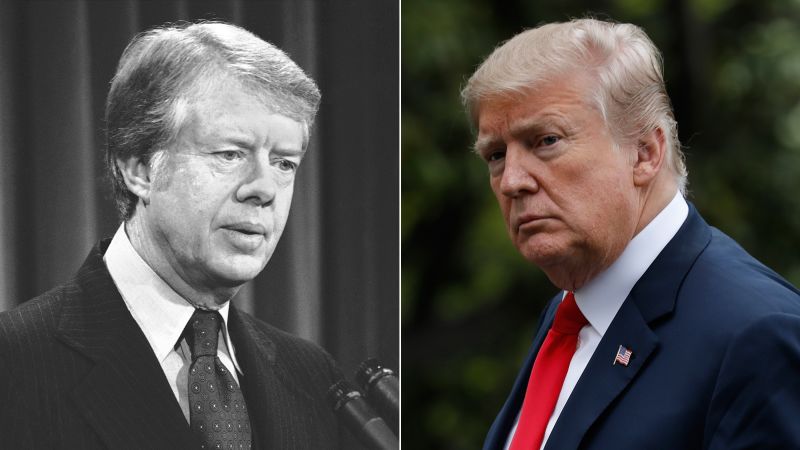Former President Jimmy Carter’s startling revelations in a 1976 Playboy magazine interview regarding his struggles with lust and adultery had a far-reaching impact on his political career. Carter’s transparent admission of having “looked on a lot of women with lust” and “committed adultery in my heart many times” nearly cost him the presidential election. Fast forward to the present day, and a very different political landscape emerges with former President Donald Trump’s recent conviction on all 34 counts of falsifying business records to cover up a sex scandal involving a porn star. Trump, the first former president in US history to be convicted of a felony, is now eyeing a potential run for re-election this November.
Questions abound regarding the implications of Trump’s conviction on the political arena. Will it sway voters? Will it incite political violence? How can a convicted felon lead a “law and order” campaign? Analyzing Trump’s situation in relation to Carter’s political legacy raises deeper concerns about the significance of virtue in politics. The narrative surrounding morality and decency in political leadership seems to have shifted drastically over the years.
Experts in political science and scholars point to a changing landscape in American expectations of political virtue. What once may have been disqualifying behavior for political leaders, such as extramarital affairs, now seems to have less impact on public opinion. The evolution of standards of political virtue is attributed to various historical events, from Nixon’s Watergate scandal to Clinton’s affair with a White House intern.
The notion of political virtue extends beyond personal conduct to include actions that benefit the common good. Political leaders like George Washington exemplified this concept by prioritizing the welfare of the nation over personal gain. However, history shows that some of the most influential presidents may have lacked personal virtue in certain aspects of their lives, yet were effective in implementing significant policy changes.
As the political landscape continues to evolve, the role of virtue in leadership remains a subject of debate. While some argue that a lack of virtue can make leaders more effective in achieving their goals, others emphasize the importance of integrity and moral character in political leadership. The conflicting narratives surrounding virtue and political power underscore the complex nature of governance and the evolving expectations of American citizens.











